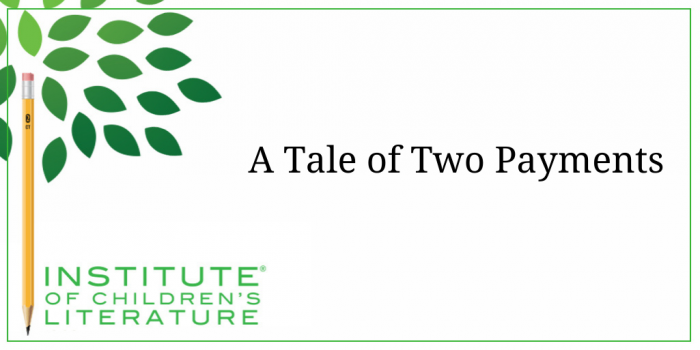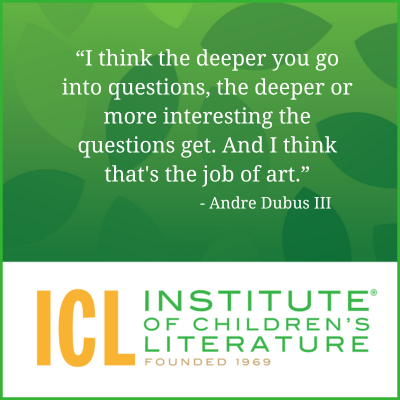1000 N. West Street #1200, Wilmington, DE 19801
© 2024 Direct Learning Systems, Inc. All rights reserved.

Book publishing and money can be a complicated subject. You’re often not only talking about how you are paid, but also about how the rights to the book are distributed. In very broad terms, there are two ways to be paid: a traditional publishing contract, or payment dependent on sales and work-for-hire, or contractual payment not related to sales. Under those broad headings, different things can happen depending on your contract and the type of publisher you’re working with.
Sales matter in any payment tied to royalties. Very small publishers often offer a royalties-only payment. That means that a percentage of the money from each book sold will go to you. Payments aren’t made as soon as a book is sold. Usually they are gathered and made at set times of year (and may be dependent upon a set amount of money reached). The percentage itself can vary by publisher and by how the book is sold. You may make a higher percentage if a book sells past a certain number, or you may make less if the book sells for a reduced price.

Because of the complexity of returns, many larger book publishers (the ones who deal with a lot of returns because they place books in many brick-and-mortar stores) have a system that helps prevent the writer from waiting quite as long to see any money from the book. This system is called “an advance.” The publisher looks at the book, calculates its expected sales and then offers to pay the author that amount up front. If the book only sells what the publisher expected, the author will see no more money. If the book sells less than the publisher expected, the author keeps the advance but everyone is a bit bummed about it (and it can have an impact on you selling future books to that or another publisher). If the book sells more than the publisher expected, you will eventually (usually after about a year) start getting royalty payments for those bonus sales. An advance is not a loan. It’s a prepayment of what the publisher expects you would make on royalties.
Most of the time, publishing contracts that pay the author in royalties (or advance and royalties) will also only be using a portion of the available rights to the book. Most publishers (for instance) won’t need film rights (they might like to have them, but if you have an agent, you can retain them). So the rights that the publisher makes use of is dependent on the needs of that publisher. And eventually all rights will revert back to the author (this happens at some point after the book goes out of print). In nearly all of these situations, the book’s copyright remains with the author.
In very, very rare occasions (sometimes in really small educational publishers, for instance), a publisher may offer a writer a contract that pays in royalties but still wants the full transfer of the copyright. This usually only happens if the idea for the project originated with the publisher, but they don’t want to take the risk of paying the author a large lump sum (because they’re small and money is tight). That is really not a good deal for the author. It also is extremely rare.
 When Book Sales Do Not Matter
When Book Sales Do Not MatterIn the explanation of copyright transfer, you saw mention of educational publishers. Most of the time educational publishers originate the ideas for the books they publish (though there can be varying amounts of creative input from the author). The publisher wants to be able to publish the book for a long time. And they want to be able to exploit the work in a variety of ways if they make changes in how they approach publishing (like offering electronic versions of books that they didn’t originally envision offering electronically). They also don’t want to deal with the author again on that particular work. As a result, they’ll often pay an author a flat fee and want the full rights, including copyright. If the copyright resides with the publisher, you are actually doing the work as “work-for-hire.” They’re asking for a product and you’re producing it and getting paid. The product then belongs completely to the buyer, not to the author.
Not all flat fee contracts are also work for hire (but most are in educational book publishing). The difference really lies in who holds the copyright at the end. One of the bonuses of a flat fee contract is that it is not dependent upon sales. The author is therefore not obligated to promote the works (though sometimes we do as part of promoting ourselves as writers) and promotion offers no potential financial boost for the book.
Generally speaking, you’ll make more money from a flat fee deal than from the royalties only deal. But a deal that offers a respectable advance and royalties will often pay more over time and it offers you the added value of retaining control of the copyright. In a work-for-hire book, you wrote the project but it’s not really “your” book. And for some writers, that’s really the critical aspect. So there really is no “better.” For each author and each book, there will be a way that works best for you. You may even abandon all of this and go with self-publishing. Who knows? It’s all an adventure and one to go into with clear eyes and a level head.
With over 100 books in publication, Jan Fields writes both chapter books for children and mystery novels for adults. She’s also known for a variety of experiences teaching writing, from one session SCBWI events to lengthier Highlights Foundation workshops to these blog posts for the Institute of Children’s Literature. As a former ICL instructor, Jan enjoys equipping writers for success in whatever way she can.
1000 N. West Street #1200, Wilmington, DE 19801
© 2024 Direct Learning Systems, Inc. All rights reserved.
1000 N. West Street #1200, Wilmington, DE 19801
© 2024 Direct Learning Systems, Inc. All rights reserved.
1000 N. West Street #1200, Wilmington, DE 19801
© 2024 Direct Learning Systems, Inc. All rights reserved.
3 Comments